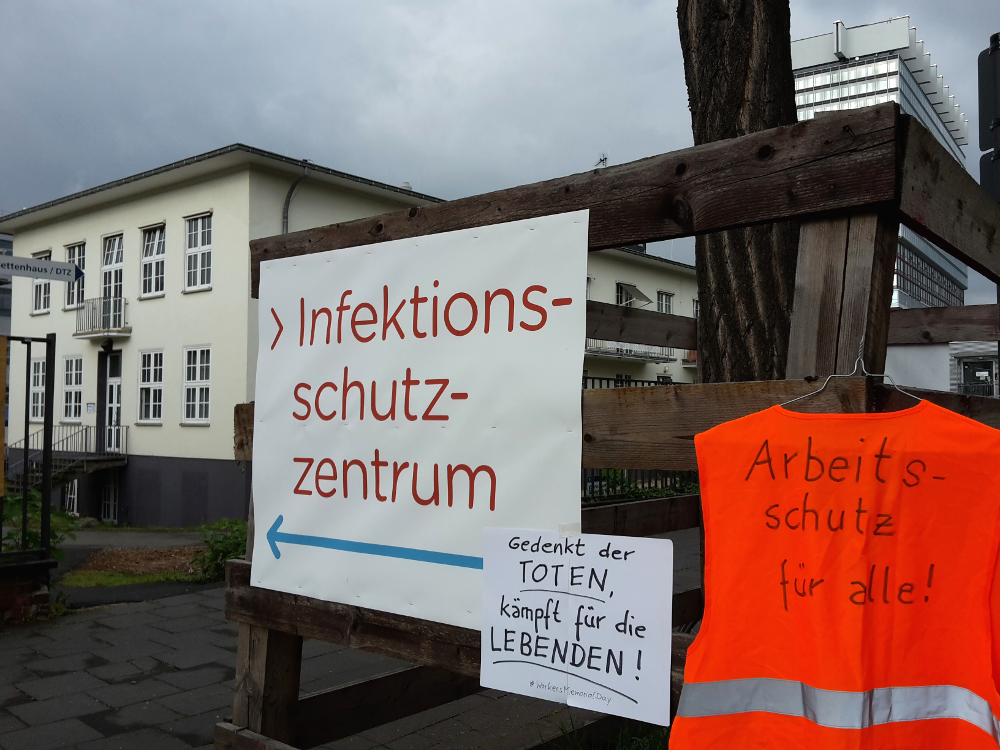Queensland Unions are calling for an enforceable mental health code of practice for all Queensland workplaces as communities confront challenges from the psychosocial hazards at work compounded by the psychological impact of coronavirus and bushfires.
This year’s Workers’ Memorial Day on 28 April will focus on ensuring private and public sector workplaces acknowledge that they play a crucial role in the mental health of workers and their communities.
Workers Memorial Day in 2020 will be observed online, with a Facebook service at www.facebook.com/QueenslandUnions with prayers and messages of remembrance.
Queensland Council of Unions General Secretary Michael Clifford said the mental health impacts of coronavirus and associated work pressures, as well as the bushfire season, is already leading to heightened anxiety and concern among workers, many of whom are particularly worried about their ongoing employment security.
“A mental health code of practice is as important as any specific industry code, like managing risks of falls from heights, working in confined spaces, or manual handling tasks.
“A code of practice will reinforce to employers their current duty of care to ensure psychological health under the Work Health and Safety Act in Queensland and provide important guidance on how to eliminate or minimise the risk of psychosocial hazards.
“Managing psychosocial hazards like client abuse or workload anxiety is just as important as managing physical hazards like falls from heights,” he said.
Research by mental health support service Beyond Blue says one in five Australians (21%) have taken time off work in the past 12 months because they felt stressed, anxious, depressed or mentally unhealthy.
Mr Clifford said mental ill-health also hurt employers, with a KPMG report in 2018 finding mental ill-health in the workplace costs an average of $3,200 per employee with mental illness, and up to $5,600 for employees with severe mental illness.
Suicide is also the leading cause of death for Australians between 15 and 44 years of age.
Mr Clifford said there was an increased focus on psychosocial issues in workplaces.
For example, in some FIFO workplaces extended shifts are generating added stresses to workers and their families through social isolation and lack of support.
“Employers making changes to rosters and work practices can needlessly elevate stress and anxiety among workers, and also increase the risk of physical injury.”
Other workers are facing increased customer aggression within the COVID-19 environment escalating stress and anxiety levels for many frontline staff.
“It’s been a difficult year already in Queensland and Australia,” he said, “with loss of life and property experienced in the bushfires and now workers across many industries risking their health and safety to keep their communities safe and supplied.”
Last year 168 Australians were killed at work, and as at 17 April this year, 52 workplace fatalities have been recorded across the nation.
“Unions have always fought for stronger health and safety laws to make workplaces safer for workers and the public,” he said.
“Unions successfully called for industrial manslaughter laws in Queensland so that dodgy bosses go to jail if a worker dies in an unsafe workplace.
“There was a successful prosecution this year after a worker died in a forklift accident in Brisbane.
“With so many people experiencing rises in mental health illnesses such as anxiety from their work, a mental health code of practice will be just as important to ensure stronger workplace safety laws,” he said.
https://www.queenslandunions.org/unions-call-for-compulsory-mental-health-code-of-practice/
